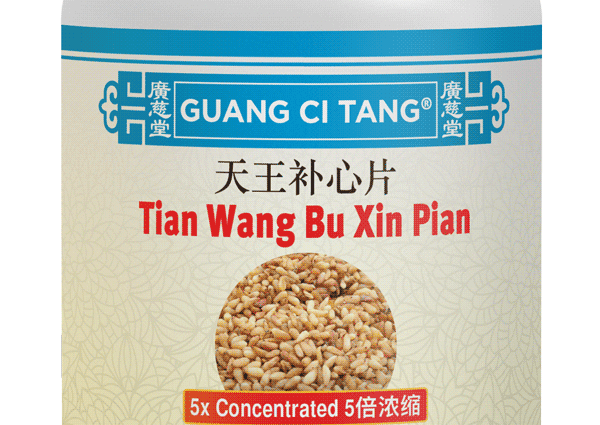Contents
Tian Wang Bu Xin Wan
Traditional therapeutic uses
Main indications: insomnia, frequent awakenings, light sleep, anxiety, palpitations, mouth ulcers, memory loss, difficulty concentrating, nervous fatigue, withdrawal from sleeping pills, anti-anxiety drugs, drugs.
In Chinese energy, this preparation is used to treat the Void of Yin of the Heart and the Kidneys, in particular due to a mental hyperactivity.
Associated symptoms : red tongue especially at the tip.
Dosage
As this formula comes in different forms and strengths, it is important to follow the manufacturer’s recommendations. A Yin tonic should be taken for three to six months. Safe in the long term.
Comments
Stress, pressure, excess of worries and preoccupations injure the Heart and Kidneys and exhaust the Blood and Essence, the Jing. Emptiness of Blood from the Heart causes palpitations, anxiety and memory failures. The exhaustion of the Blood causes hyperactivity, a Fire of the Heart, from where the insomnia or a restless sleep, and difficulties of concentration. By invigorating the Yin, the Essence and the Heart, by nourishing the Blood, the preparation allows the Jing, Kidney Water, to extinguish the Fire of the Heart so that the Spirit becomes calm and peaceful again.
This formula is recommended for people using anxiolytics, psychotics, antidepressants, to counter the side effects of these drugs and recover their health more quickly.
History
This formula is cited in the volume She Sheng Mi (Secret studies to acquire health) written by the famous doctor Hong Ji (Jiu-You) in 1638. The author declared to have received the revelation in a dream from the Heavenly Emperor himself. It is from this anecdote that the name of the preparation comes from.
Precautions
The original traditional formula contains Zhu sha (cinnabar) which includes a salt of mercury. This product has been banned in Canada. The products we are quoting here do not contain mercury.
Composition
Nom en pin yin | Pharmaceutical name | Therapeutic actions |
Sheng Di Huang | Radix rehmanniae glutinosae (Chinese foxglove root)1 | Nourishes Yin, drives out Heat from Heart and Kidneys |
Dang Gui | Radix Angelica sinensis (Chinese angelica root) | Nourishes the Blood, tones the Heart |
Wu Wei Zi | Schizandra chinensis fruit (scizandra fruit) | Tones the Kidneys and the Heart |
Suan Zao Ren | Semen which are spinosae (jujube seeds) | Calm the mind, nourish the heart |
Bai Zi Ren | Semen biotae orientalis (thuja seeds) | Calm the mind, nourish the heart |
Tian Men Dong | Tuber asparagus cochinchinensis (asparagus stem) | Nourishes the Yin, drives out the Heat |
Mai Men Dong | Tuber ophiopogonis japonici (lily stem) | Nourishes the Yin, drives out the Heat |
Xuan Shen | Radix scrofulariae ningpoensis (figwort root) | Nourishes the Yin, drives out the Heat |
Dan Shen | Radix salviae miltiorrhizae (sage root) | Mobilize the Blood, calm the Spirit |
Fu Ling | Sclerotium poriae cocos (filamentous fungus) | Calm the Heart and the Spirit |
Jie Geng | Radix platycodi grandiflori (Chinese bellflower root) | Lead the other plants to the Upper Foyer |
Yuan Zhi | Radix polygalae tenuifoliae (polygal root) | Calm the Spirit |
On the shelves
The products of the following companies meet the good manufacturing practices ofAustralian Therapeutic Goods Administration, which are considered, at present, to be the highest standards in the world for the evaluation of manufacturing processes of Chinese Pharmacopoeia products.
|
|
|
|
Although it does not meet the manufacturing standards of theAustralian Therapeutic Goods Administration, the following product has been analyzed to show that it does not contain pesticides, contaminants or synthetic drugs.
|
|
Available in Chinese herbalists, many natural health product stores, as well as distributors of acupuncture and traditional Chinese medicine equipment.










